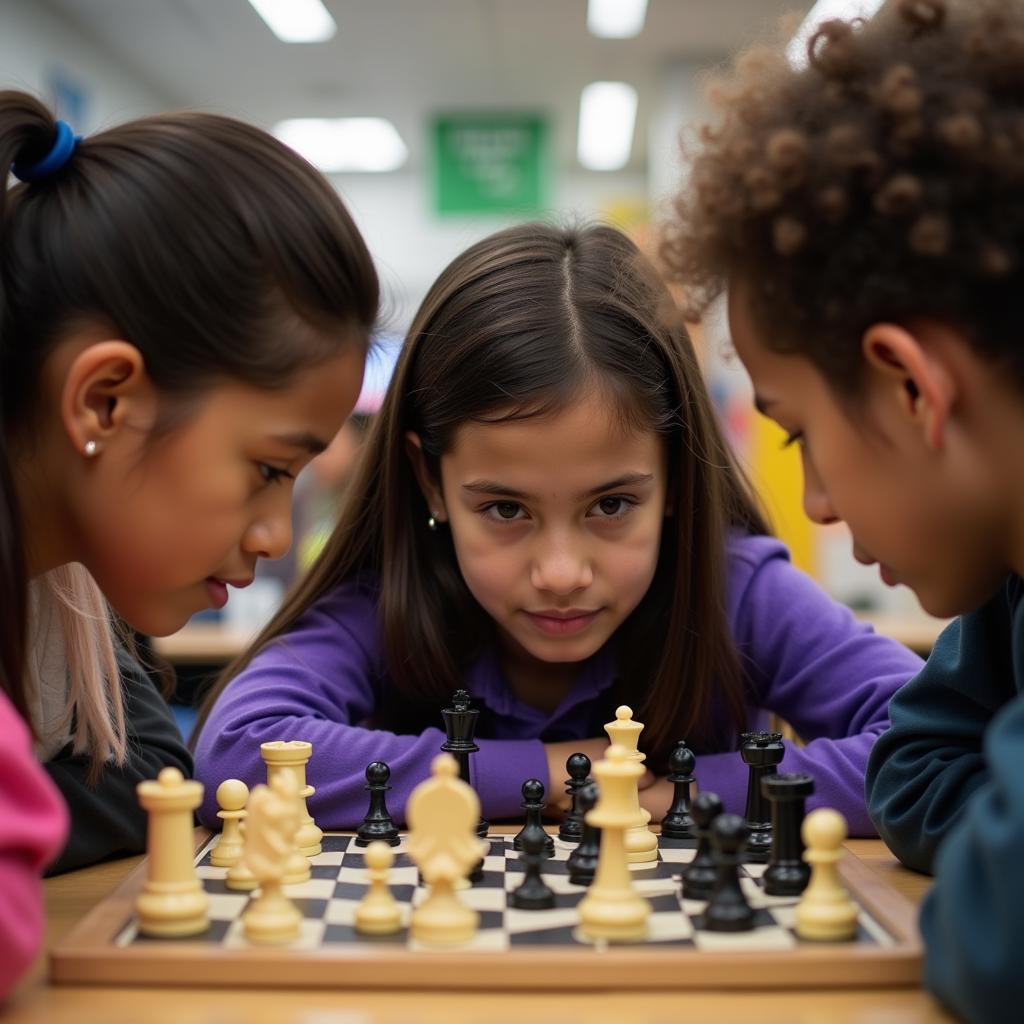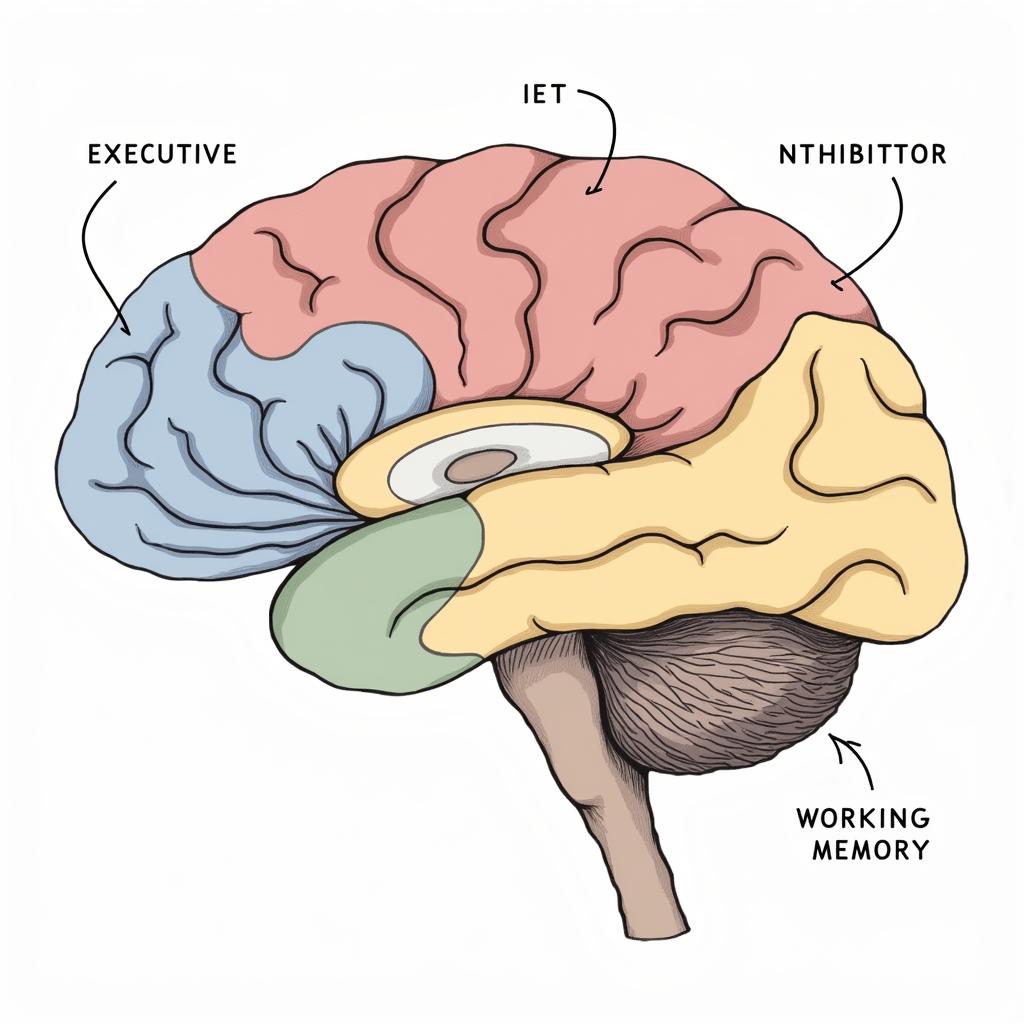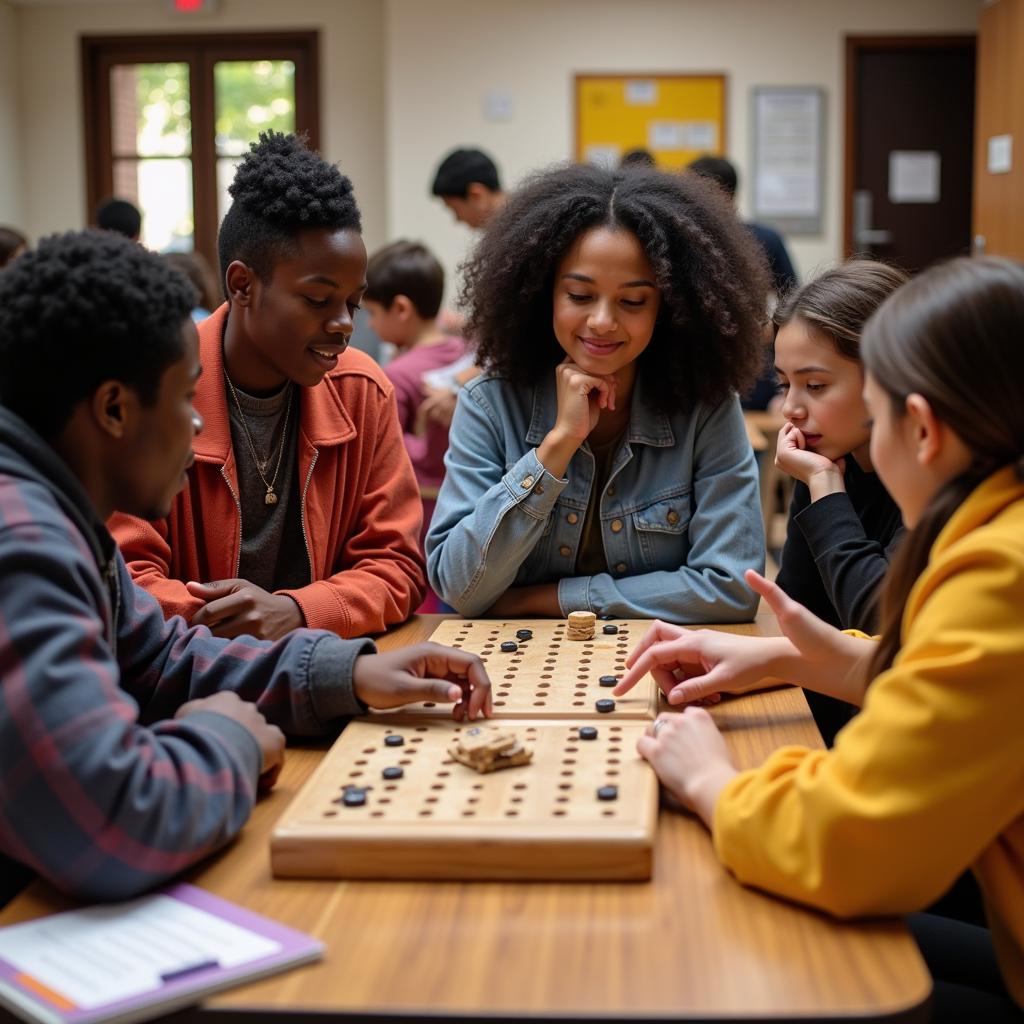IELTS Reading Practice Test
In this IELTS Reading practice test, we’ll explore how traditional games enhance student problem-solving skills. This topic not only provides valuable insights into educational methods but also serves as excellent preparation for your IELTS exam. How board games are used in teaching world history is another fascinating aspect of game-based learning that you might find interesting.
Let’s dive into the three passages, each followed by a set of questions to test your comprehension and analytical skills.
Passage 1 – Easy Text
The Revival of Traditional Games in Modern Education
In recent years, educators have been increasingly turning to traditional games as a means of developing critical thinking and problem-solving skills in students. These time-honored pastimes, once relegated to the realm of leisure, are now being recognized for their pedagogical value. Games like chess, Go, and Mancala are finding their way into classrooms, not as mere diversions, but as powerful tools for cognitive development.
The resurgence of interest in these games stems from their inherent complexity and strategic depth. Chess, for instance, requires players to anticipate multiple moves ahead, evaluate numerous possibilities, and adapt their strategies in real-time. This mental exercise closely mirrors the problem-solving processes required in many academic and real-world scenarios.
Moreover, traditional games often embody cultural wisdom and historical significance. By engaging with these games, students not only sharpen their minds but also gain insights into different cultures and ways of thinking. This multifaceted approach to learning aligns well with modern educational philosophies that emphasize holistic development.
Educators have observed that students who regularly participate in these games show marked improvements in their ability to analyze complex situations, make decisions under pressure, and think creatively. These skills are invaluable in an era where adaptability and innovative thinking are prized attributes in the workforce.

Questions 1-5
Do the following statements agree with the information given in the passage? Write
TRUE if the statement agrees with the information
FALSE if the statement contradicts the information
NOT GIVEN if there is no information on this
- Traditional games were previously considered only as leisure activities.
- Chess is the most effective game for developing problem-solving skills.
- Playing traditional games helps students understand different cultures.
- All students show immediate improvement in problem-solving after playing these games.
- Modern workplaces value the skills developed through playing traditional games.
Questions 6-10
Complete the sentences below. Choose NO MORE THAN TWO WORDS from the passage for each answer.
- Educators are using traditional games to develop students’ __ and problem-solving abilities.
- Games like chess require players to __ multiple moves in advance.
- Traditional games often contain __ and historical importance.
- Students who play these games regularly show improvements in analyzing __ situations.
- The skills gained from these games are particularly valuable in an era that prizes __ and innovative thinking.
Passage 2 – Medium Text
The Cognitive Benefits of Traditional Game Play
The incorporation of traditional games into educational curricula has garnered significant attention from cognitive scientists and educational psychologists. These experts posit that such games offer a unique blend of cognitive challenges that can significantly enhance a student’s problem-solving capabilities. The intricate mechanics and strategic depth inherent in many traditional games provide a fertile ground for developing critical thinking skills that extend far beyond the game board.
One of the primary cognitive benefits observed is the enhancement of executive functions. These high-level mental processes include working memory, cognitive flexibility, and inhibitory control. For instance, the game of Go, with its vast number of possible moves, challenges players to hold multiple scenarios in their working memory while simultaneously planning future moves. This mental juggling act strengthens neural pathways associated with executive function, potentially improving a student’s ability to manage complex tasks in other areas of their academic and personal lives.
Moreover, traditional games often require players to employ heuristic thinking – the ability to make quick, efficient judgments based on limited information. This skill is particularly valuable in real-world problem-solving scenarios where time and resources may be constrained. Games like Mancala, which involve rapid calculation and strategic decision-making, can hone this ability, enabling students to become more adept at navigating ambiguous or high-pressure situations.

The social aspect of many traditional games should not be overlooked in assessing their cognitive benefits. Multiplayer games foster skills in interpersonal communication, negotiation, and reading social cues. These soft skills are increasingly recognized as crucial components of problem-solving in collaborative environments, mirroring the teamwork-oriented nature of many modern workplaces and academic settings.
Furthermore, the iterative nature of game play – where strategies are tested, outcomes observed, and approaches refined – closely mirrors the scientific method. This process encourages students to develop a growth mindset, viewing challenges as opportunities for learning and improvement rather than insurmountable obstacles. Such an attitude is invaluable in fostering resilience and perseverance in the face of complex problems.
It’s worth noting that the benefits of traditional game play are not limited to academic performance. The influence of language clubs on student self-confidence demonstrates how extracurricular activities can boost overall student development, much like the cognitive enhancements provided by traditional games.
Questions 11-15
Choose the correct letter, A, B, C, or D.
-
According to the passage, traditional games are valuable in education because they:
A) Are easy to learn and play
B) Provide a range of cognitive challenges
C) Are more fun than conventional teaching methods
D) Require expensive equipment -
The game of Go is mentioned as an example of how games can improve:
A) Physical coordination
B) Artistic creativity
C) Executive functions
D) Language skills -
Heuristic thinking, as developed through games like Mancala, is useful for:
A) Memorizing large amounts of information
B) Making quick decisions with limited data
C) Improving mathematical calculations only
D) Enhancing artistic abilities -
The social aspect of traditional games is important because it:
A) Makes the games more enjoyable
B) Helps students make friends
C) Develops skills needed in modern workplaces
D) Is the primary focus of the games -
The iterative nature of game play is compared to:
A) The scientific method
B) Artistic creation
C) Physical exercise
D) Classroom lectures
Questions 16-20
Complete the summary below. Choose NO MORE THAN TWO WORDS from the passage for each answer.
Traditional games offer numerous cognitive benefits to students. They enhance (16) __, which include working memory and cognitive flexibility. Games like Go challenge players to manage multiple scenarios simultaneously, strengthening neural pathways. Traditional games also develop (17) __, allowing for efficient decision-making in time-constrained situations. The (18) __ of these games improves interpersonal skills crucial for collaborative problem-solving. The process of playing games, where strategies are tested and refined, mirrors the (19) __ and encourages a (20) __, which is valuable for tackling complex problems.
Passage 3 – Hard Text
The Pedagogical Integration of Traditional Games: A Paradigm Shift in Problem-Solving Education
The integration of traditional games into contemporary educational frameworks represents a significant paradigm shift in the approach to fostering problem-solving skills among students. This methodology, while drawing upon age-old practices, is underpinned by cutting-edge research in cognitive science and educational psychology. The multifaceted benefits of incorporating such games into curricula extend beyond mere cognitive enhancement, encompassing emotional intelligence, cultural awareness, and adaptive thinking strategies.
One of the most salient aspects of traditional games in an educational context is their ability to simulate complex systems in microcosm. Games such as Go or Chess, with their intricate rule sets and vast possibility spaces, serve as analogues for real-world scenarios where multiple variables interact in non-linear ways. By engaging with these systems, students develop a heuristic approach to problem-solving, learning to navigate ambiguity and make decisions based on incomplete information – a skill set that is increasingly valuable in our rapidly evolving global landscape.
Moreover, the iterative nature of game play fosters a growth mindset among students, encouraging them to view failures not as terminal setbacks but as opportunities for learning and refinement. This perspective is crucial in developing resilience and adaptability, traits that are essential in addressing the complex, often ill-defined problems that characterize many modern fields of study and professional environments.
The cultural dimension of traditional games should not be understated in their pedagogical application. Many of these games are repositories of historical wisdom and cultural values, offering students a window into diverse ways of thinking and problem-solving approaches. This exposure cultivates cognitive flexibility and cross-cultural competence, preparing students to tackle global challenges with a more nuanced and inclusive perspective.

Furthermore, the social dynamics inherent in many traditional games provide a fertile ground for developing emotional intelligence and interpersonal skills. The face-to-face interaction, negotiation, and non-verbal communication required in these games hone students’ abilities to collaborate effectively, manage conflicts, and lead diverse teams – competencies that are increasingly prioritized in both academic and professional spheres.
The metacognitive aspects of game-based learning in this context are particularly noteworthy. As students engage with traditional games, they are often required to articulate their strategies, explain their decision-making processes, and reflect on their performance. This verbalization and self-reflection enhance metacognitive skills, enabling students to become more self-aware learners capable of monitoring and optimizing their own cognitive processes.
It is crucial to note that the effective implementation of traditional games in education requires a carefully calibrated approach. Educators must be adept at aligning game mechanics with specific learning objectives, scaffolding experiences to match students’ developmental levels, and facilitating meaningful post-game reflections to consolidate learning outcomes. The challenge lies in striking a balance between the inherent enjoyment of game play and the rigorous pursuit of educational goals.
Critics may argue that the time invested in game-based learning could be more efficiently allocated to direct instruction in problem-solving techniques. However, proponents counter that the experiential and immersive nature of learning through games leads to deeper, more transferable understanding of problem-solving principles. The key lies in viewing these games not as replacements for traditional pedagogy, but as powerful complements that enrich the educational experience.
As educational systems worldwide grapple with the challenge of preparing students for an increasingly complex and interconnected world, the integration of traditional games into problem-solving curricula offers a promising avenue for cultivating the adaptive, creative, and culturally aware problem-solvers of tomorrow. This approach not only honors the wisdom embedded in centuries-old practices but also leverages it to meet the evolving demands of contemporary education.
Cultural influences on STEM education approaches provide another interesting perspective on how traditional practices can be integrated into modern educational systems, much like the use of traditional games in problem-solving education.
Questions 21-26
Complete the summary below. Choose NO MORE THAN TWO WORDS from the passage for each answer.
The integration of traditional games in education represents a (21) __ in teaching problem-solving skills. These games can (22) __ in microcosm, helping students develop a heuristic approach to decision-making. The (23) __ of gameplay encourages a growth mindset, while the cultural aspects of these games promote (24) __ and cross-cultural competence. The social elements of traditional games improve (25) __ and interpersonal skills. For effective implementation, educators need to use a (26) __ to align game mechanics with learning objectives.
Questions 27-30
Choose FOUR letters, A-G. Which FOUR of the following are mentioned in the passage as benefits of using traditional games in education?
A) Improved physical fitness
B) Enhanced metacognitive skills
C) Better memorization techniques
D) Increased cultural awareness
E) Advanced mathematical abilities
F) Developed emotional intelligence
G) Improved foreign language proficiency
Questions 31-35
Do the following statements agree with the claims of the writer in the passage? Write
YES if the statement agrees with the claims of the writer
NO if the statement contradicts the claims of the writer
NOT GIVEN if it is impossible to say what the writer thinks about this
- Traditional games are superior to all other teaching methods for problem-solving.
- The cultural aspects of traditional games help students develop a more inclusive perspective.
- All traditional games require face-to-face interaction to be effective.
- Critics believe that time spent on game-based learning is wasted.
- Traditional games should completely replace conventional problem-solving instruction.
Questions 36-40
Complete the sentences below. Choose NO MORE THAN TWO WORDS from the passage for each answer.
- Games like Go and Chess serve as __ for real-world scenarios with multiple interacting variables.
- The iterative nature of game play helps students develop __ and adaptability.
- Many traditional games are repositories of __ and cultural values.
- As students explain their strategies in games, they enhance their __ skills.
- Proponents argue that learning through games leads to a __ understanding of problem-solving principles.
Answer Key
Passage 1
- TRUE
- NOT GIVEN
- TRUE
- NOT GIVEN
- TRUE
- critical thinking
- anticipate
- cultural wisdom
- complex
- adaptability
Passage 2
- B
- C
- B
- C
- A
- executive functions
- heuristic thinking
- social aspect
- scientific method
- growth mindset
Passage 3
- paradigm shift
- simulate complex systems
- iterative nature
- cognitive flexibility
- emotional intelligence
- carefully calibrated approach
- B, D, F (Choose any 4 from these and E)
- B, D, F (Choose any 4 from these and E)
- B, D, F (Choose any 4 from these and E)
- B, D, F (Choose any 4 from these and E)
- NOT GIVEN
- YES
- NO
- NO
- NO
- analogues
- resilience
- historical wisdom
- metacognitive
- deeper
This comprehensive IELTS Reading practice test on how traditional games enhance student problem-solving skills provides a thorough examination of the topic while also preparing you for the various question types you might encounter in the actual IELTS exam. Remember, regular practice with diverse topics and question formats is key to success in the IELTS Reading module. The role of digital platforms in education access is another important aspect of modern education that you might want to explore for a well-rounded understanding of current educational trends.